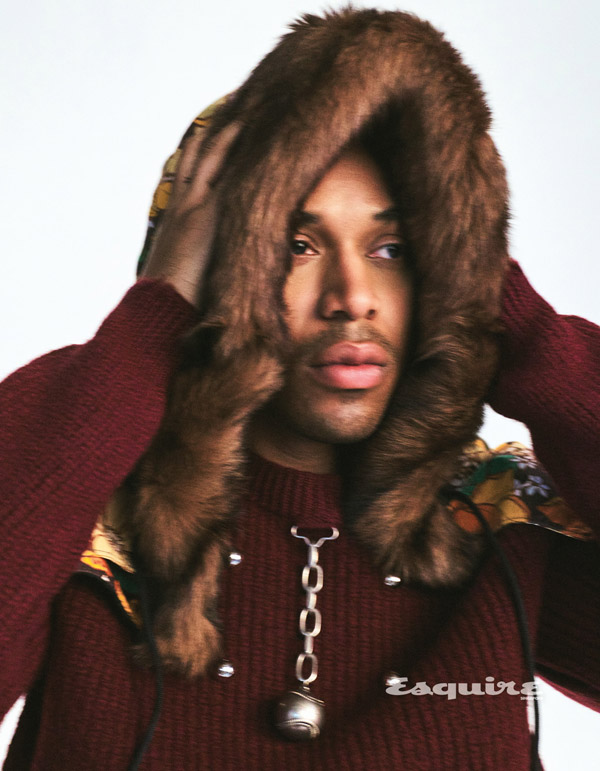
It's common, if not expected, to ask a cover personality about their work. Albums the musicians have produced, films the actors have starred in... you know the drill. Work occupies a sizeable chunk of our lives after all; a third on average. So, who are we beyond what we do for a living?
The succinct caption Kelvin Harrison Jr sports on his Instagram profile hints at his dynamic to his work. He curiously lists a portfolio link under it; despite losing himself in inhabiting figures such as blues legend BB King, violinist-composer Joseph Bologne, and Martin Luther King Jr. His next role, besides the one in The Hunger Games universe, is a Jean-Michel Basquiat biopic, Samo Lives, which he also happens to be executive producing.
The 31-year-old actor has been attached to the project for five years now. A heightened responsibility and emotional investment make it feel "not completely my baby, but a very close stepchild". Despite a possibly jetlag-induced headache, the New Orleans native is gradually upbeat; alternating between elaborate, candid answers and bouts of light laughter.
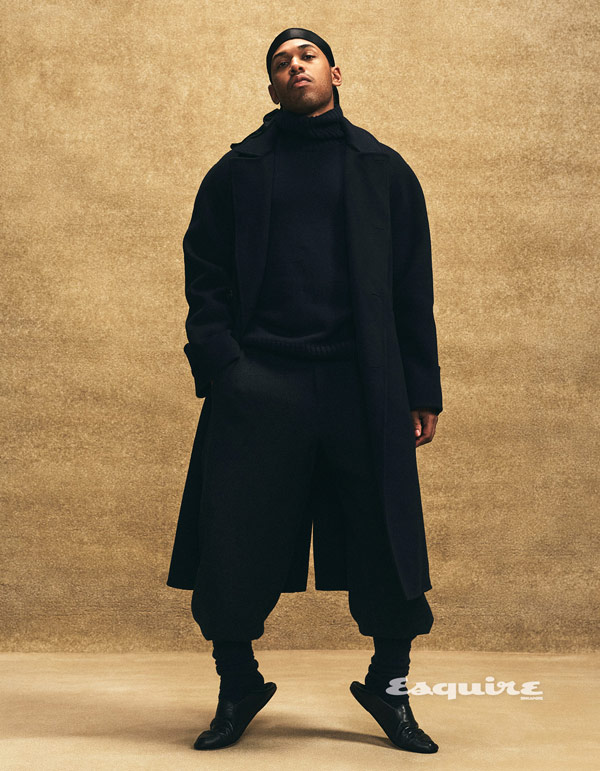
Few know that he began as a production assistant on set. Despite his strong musical roots, he aspired to be an assistant director. "That was something that I was really excited about, because I always knew I had good organisational skills," he professes, "I didn't know what medium it would be, but I wanted to create. I was good at having an idea, figuring out how to put the elements together and just making it feel like it had a high production value."
He traces this back to middle school; orchestrating a whole razzle-dazzle to celebrate his parents' anniversary. "I was building all those things to create an experience for my family that would give them excitement and joy, 'cause I didn't have money as a kid to buy things for them." Harrison considers it a gift that had its first practical outlet behind the scenes.
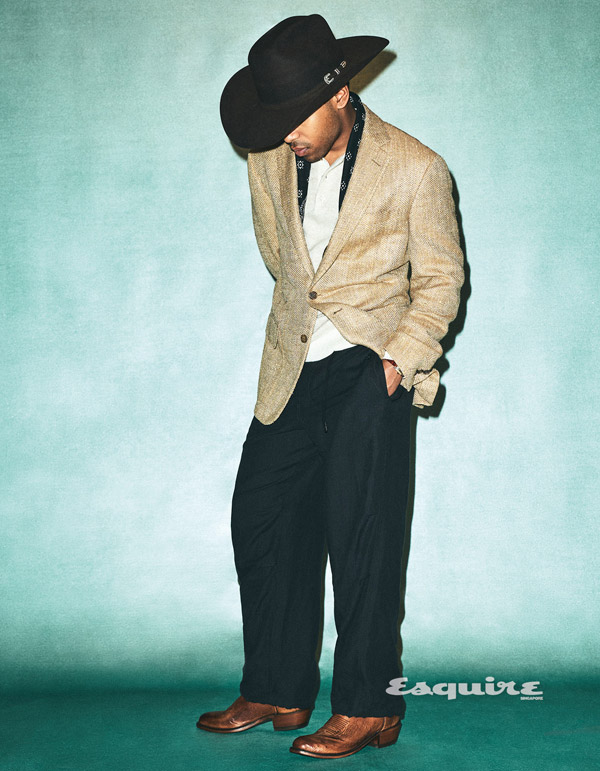
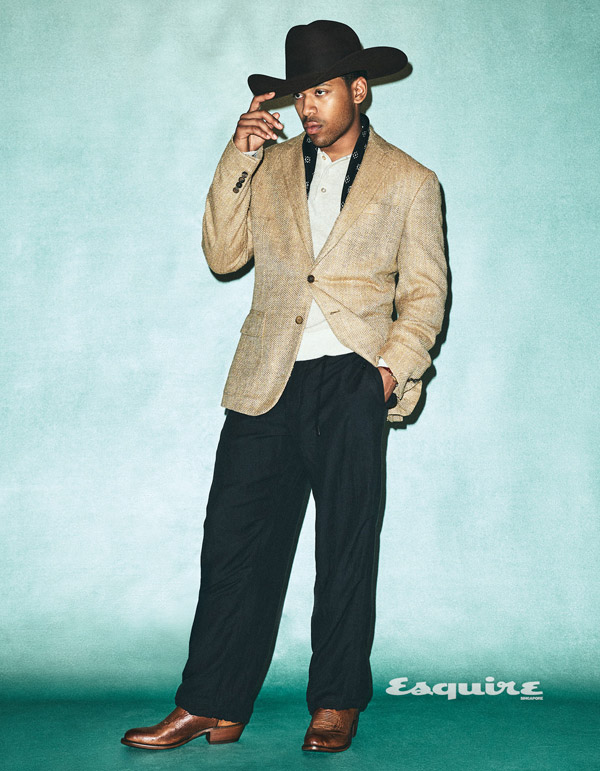
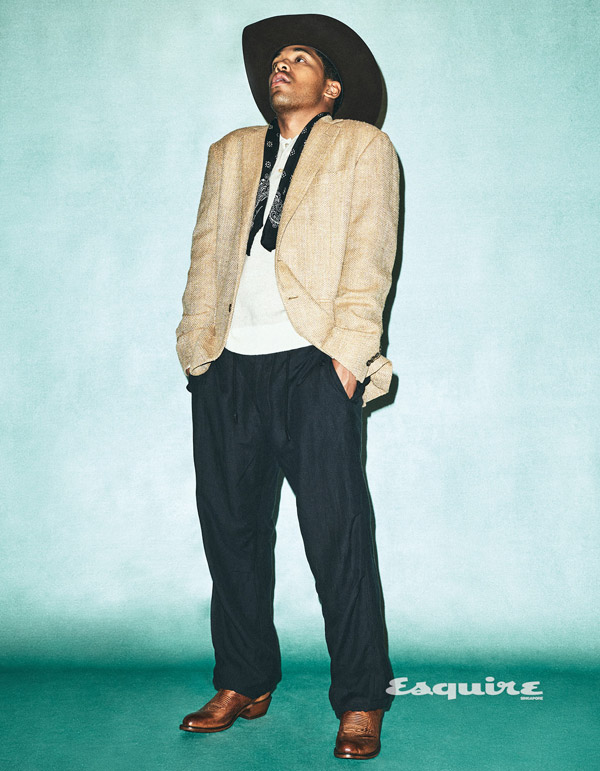
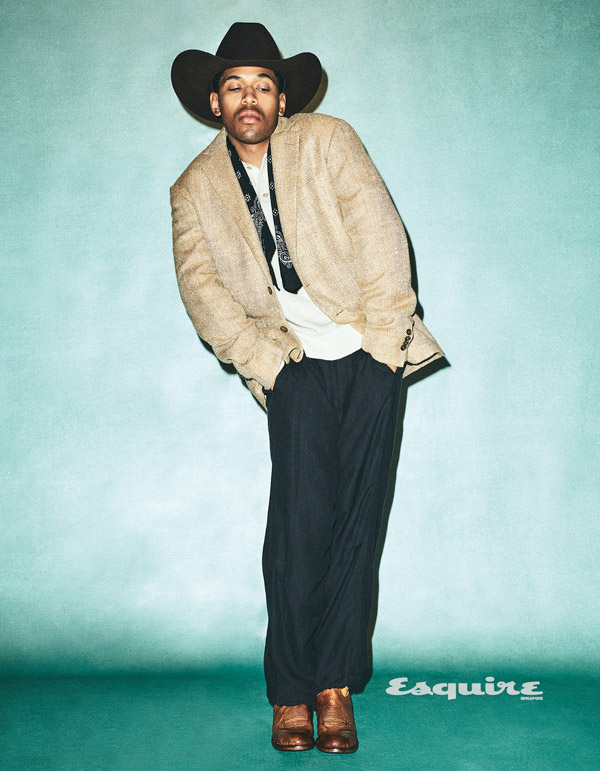
Even after he somewhat unintentionally became an actor, the urge for deeper involvement never left. "I've always been accused of being the actor who wants to produce and direct themselves. And that's not a compliment," he grins, "It means that I don't know how to mind my own business."
He has since learnt to manage his micro-managing tendencies. "Most magic comes out of the imperfections," he observes, noting that his perfectionism stems from the fear of staying ordinary (specifically, it was the line Ricky Fitts delivers in American Beauty that haunts him: "You're boring, and you're totally ordinary, and you know it"). He acknowledges that the pursuit is a flawed, not to mention purpose-defeating, response to mediocrity.
A decade proper into the industry, Harrison's mindset shifted. "I honestly think I was way more confident. I think I came into [the industry] not understanding enough. I loved it and I genuinely thought if I got the opportunity to be there, then I was supposed to be there," he recalls.
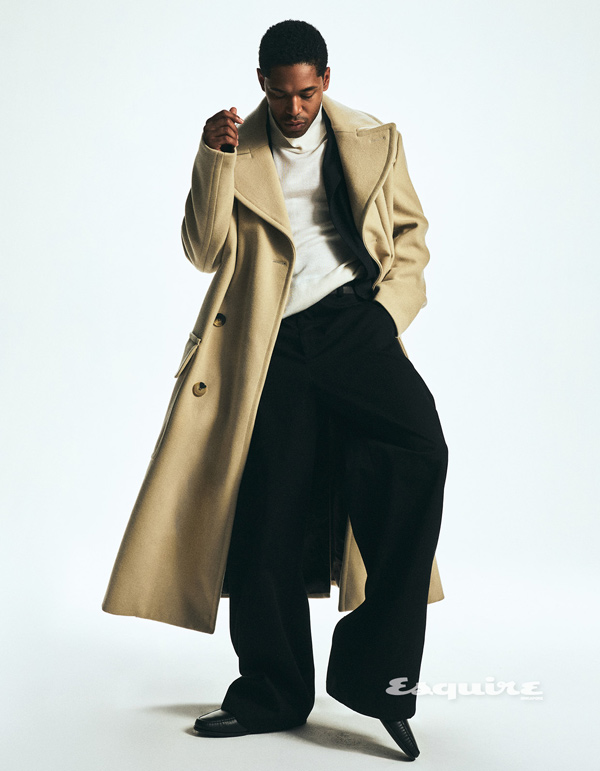
Navigating the politics of show business has admittedly dampened his original relationship to the dream. Imposter syndrome and its plethora of insecurities inevitably swarm in: Was he here on merit, or just a diversity hire?
"I think what is really scary about the business is you see so many incredibly talented actors maybe not get the same opportunities as you. It starts to make you doubt the system, that we glorify the idea of a star or whatever that means." He continues, reminiscing his path from ignorant bliss to growing pains, and finally, a posture of peace. "Part of the job is to sell stardom for some. But I think I've found comfort in just being a storyteller. I don't have to be a star, you know?"
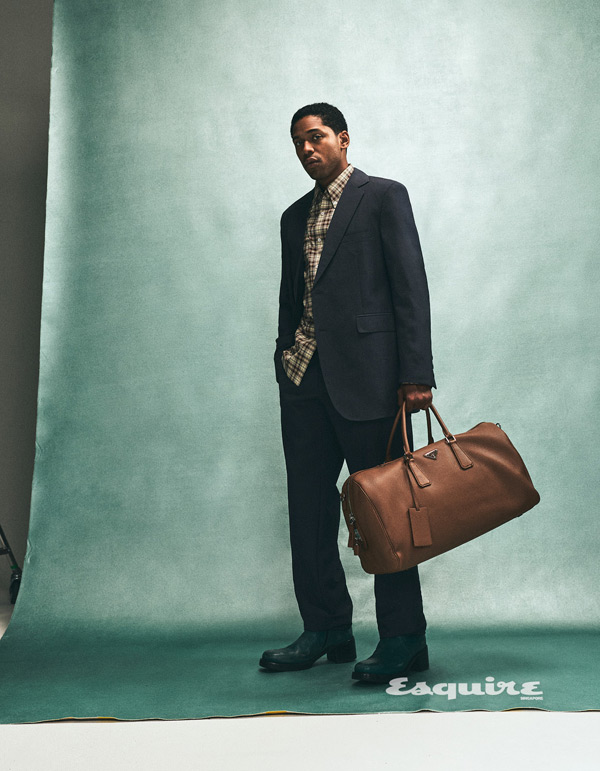
He credits much of his journey to being in the right place at the right time—a narrative he has countlessly repeated. What was a potential hobby, it grew into leading roles alongside award-winning greats and yet, the uncertainty of longevity always lingered.
"It wasn't that I thought I was going to be really successful because of it, but I started seeing myself as legit," he retells, "I've pinned the lead of two movies with phenomenal actors and I'm only 21." When he received his first major nomination, he wasn't even sure what it was for (no, Gotham Award is not a "Batman thing"). Unfortunately, that recognition brought further feelings of inadequacy. Plus, comparison with peers of similar headstarts but seemingly springboarded trajectories.
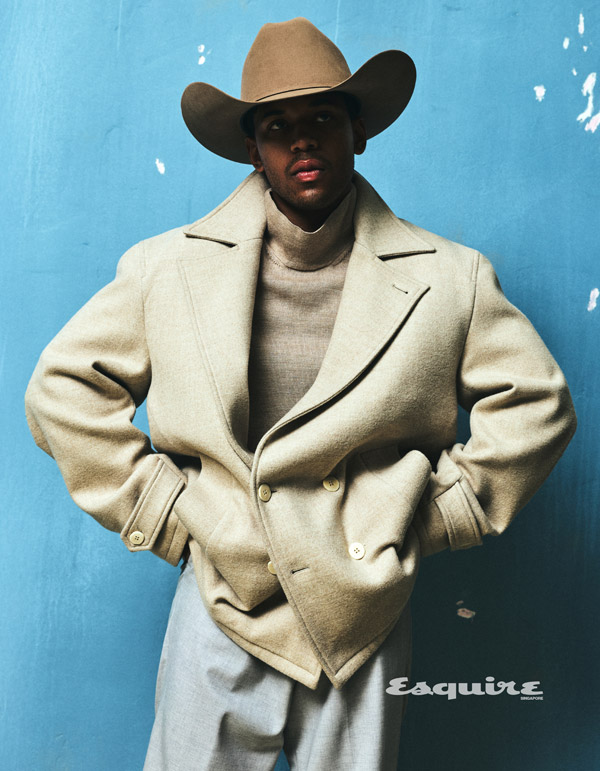
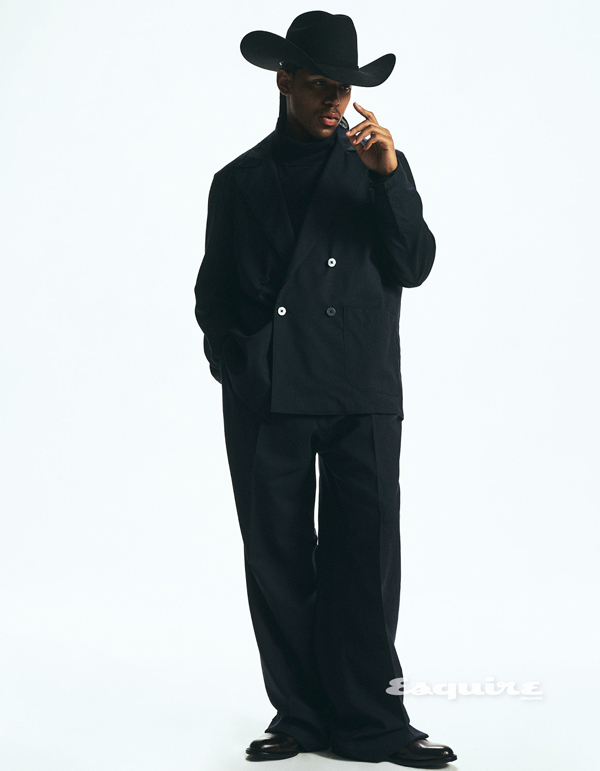
The flipside to his many dramatic roles were, well... landing more dramatic roles. Harrison wasn't exactly top billing choice for comedy. Though intense characters proved his acting chops and offered social commentary, they also cemented his "sad boy" image. Different genres and formats didn't necessarily differ in difficulty level. It was more about exercising a different muscle.
"Is it a weaker muscle for me? One hundred per cent. Does that make me really terrified of doing it? Sure, but in a positive way. I do it, fail, get better at it, then try it again and eventually I'll be pretty solid.
"If anything, doing comedy helps the drama when you go back to it," he opines, "It helps you find the levity and the irony. Sometimes in the most dramatic moments, it almost feels absurd how life can be at times."
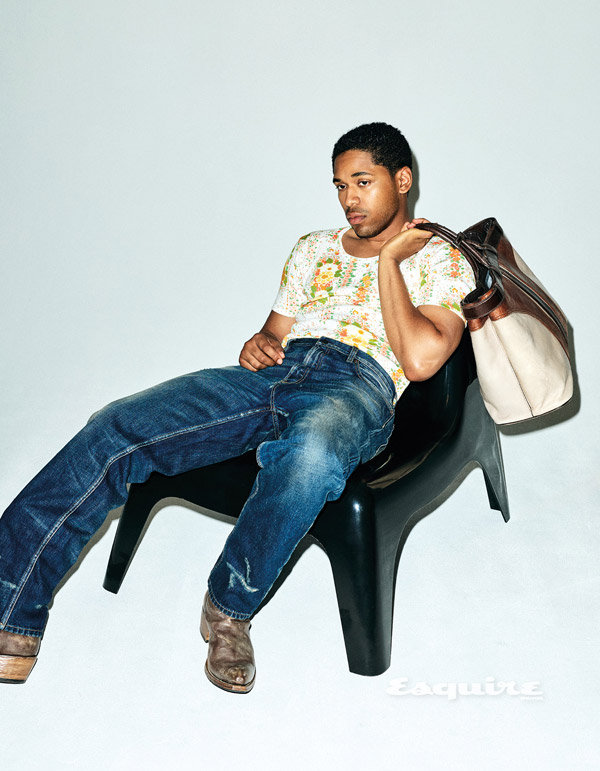
For someone who laughs readily, nothing guarantees a good chortle quite like a call with his sisters. "Nothing is serious to them, everything's a joke," he smiles, "I think it's always so fun just to see their perspective on difficulty or even the simple things in life being hilarious."
Contrast this with a highly disciplined upbringing in the Harrison household. By age 12, he had earned a black belt in martial arts and was proficient in violin, piano and trumpet. No surprise, as a child to musicians; his father a classical music teacher. His routine was school, jazz programme, practice, homework; rinse and repeat.
Oh, and keyboarding at church. Technically his first paid gig, unless you count him selling his art in middle school (making Samo Lives a full circle moment). Despite the hectic schedule, childhood had its pockets of respite and tomfoolery. Mainly bootleg MTV-style home videos and karaoke with cousins on summer visits (picture nine-year-olds belting out "Brick House").
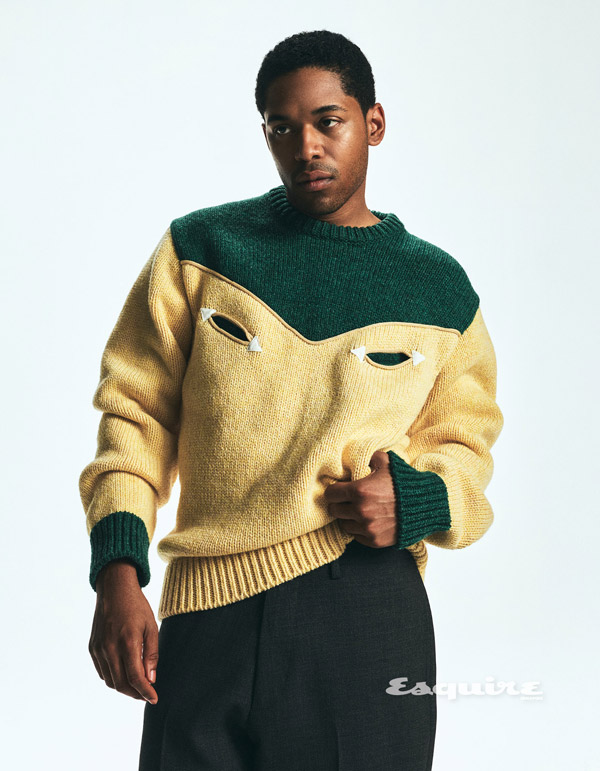
All these fond formative experiences armed him with a passion and practical skills for production. They shaped his strategic approach to his career and afforded him the success gained thus far. Yet, if the actor were to lose it all tomorrow, he can return to two constants in his life.
"Faith and family are the only things I had when I started," he attests, "I think about that often—if [what I have now] goes away, who am I? I'm not an actor. I'm someone who likes to act, and someone cuts me a cheque to do it. That's the relationship to it."
He's a son, a brother, a boyfriend, a godson's favourite playmate. He bakes, loves French toast, and is currently into his new bike. His roles—fictional or otherwise—are merely facets of the vast complexities that make Kelvin Harrison Jr. From the way he affirms his beliefs, it's clear he intends to keep it that way.
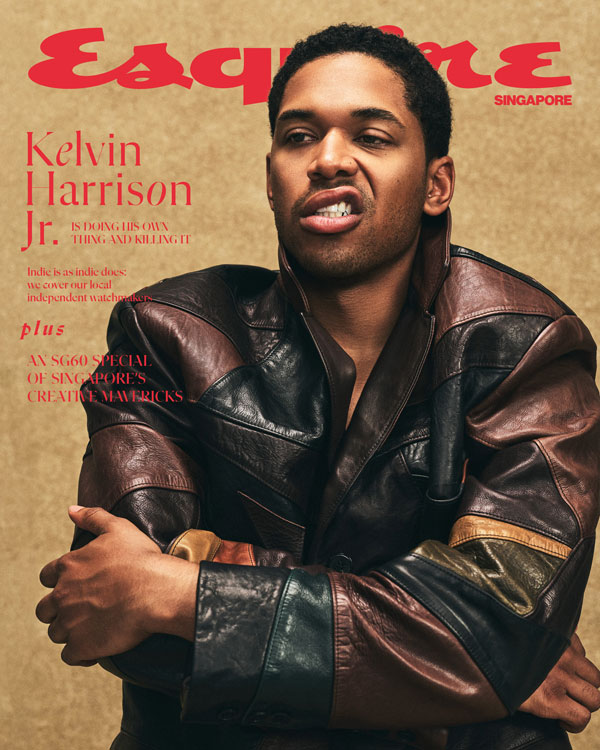
Photography: Brendan Wixted at PRINT & CONTACT
Fashion Direction: Asri Jasman
Art Direction: Joan Tai
Styling: Julian Fetterman
Hair: Shelli Mosley
Barber: Chaz Hazlitt at ART DEPARTMENT
Makeup and Executive Producer: Alex T
Set Design: Milena Gorum
Lead Man: Atanasio Seferlis Jr. (Tito)
Scenic Painter: Iris Abbot
Digitech: Anthony Tripoli
Producers: Nika Bregvadze and Nicholette Hails at KYNN
Photography Assistant: Justin Mulroy
Styling Assistants: Lucas Blackett and Grace Turner
Set Design Assistant: Cameron Gonzalez-Williamson
Studio and Equipment: Neighbors BK
Talent PR: Presse Public Relations